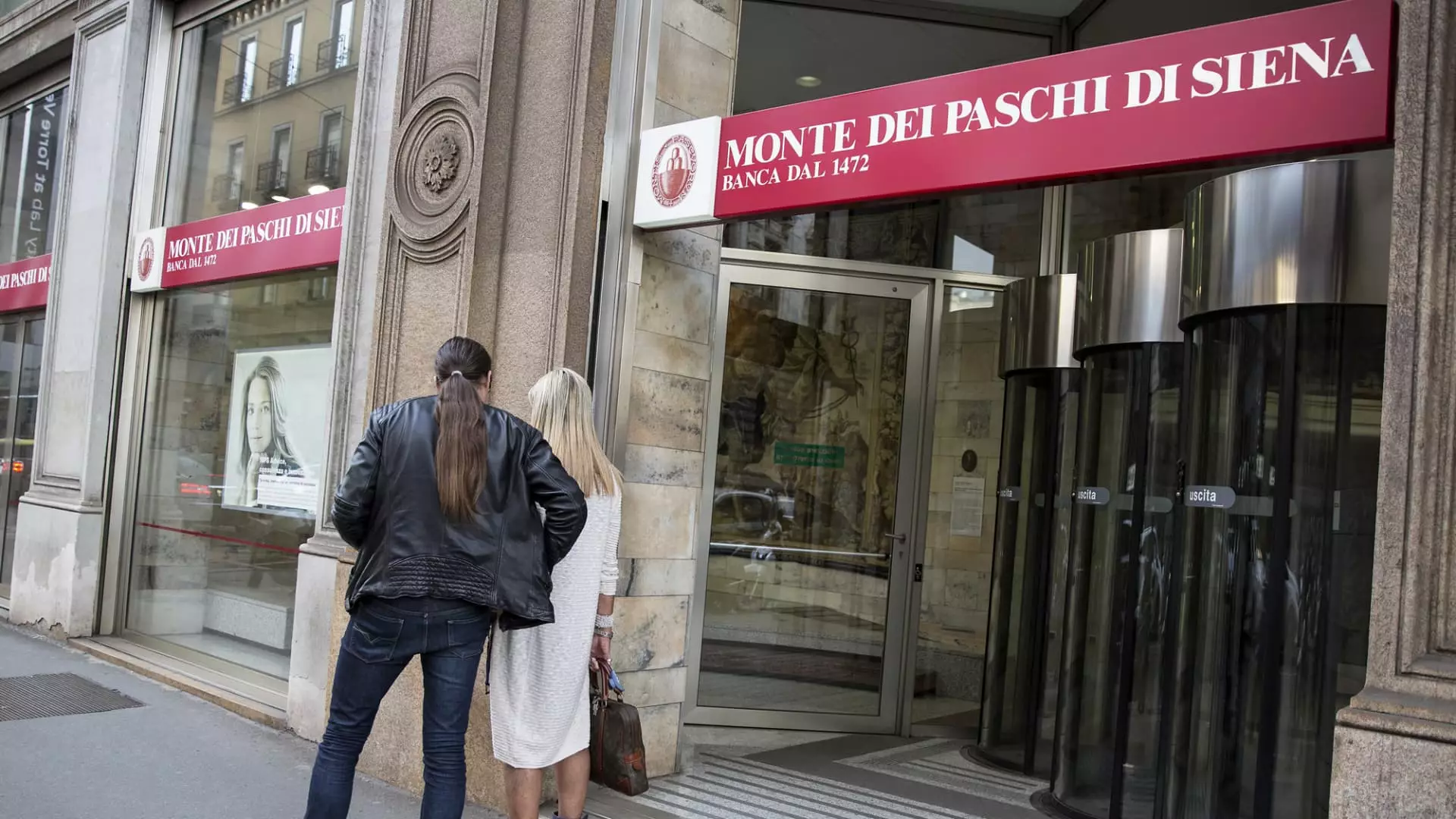Monte dei Paschi di Siena, the world’s oldest bank, has become a symbol of resilience and audacity in the face of challenges, yet its recent maneuvers appear more reckless than resolute. In a striking decision, Monte dei Paschi is pursuing a staggering €13 billion ($14.3 billion) acquisition of Mediobanca, an institution well-regarded for its wealth management and investment banking prowess. This ambitious venture invites a critical examination, especially given the tumultuous state of the financial markets. Investors and analysts are left questioning whether this bold ambition is genuinely indicative of strategic genius or simply a stubborn attempt to maintain relevance.
The audacious all-share offer for Mediobanca came as a surprise to many back in January, and the institution’s response was far from enthusiastic; it labeled the proposal a “destructive” move. This rejection, which raises critical alarms about the rationale behind Monte dei Paschi’s intentions, highlights the existing tension in the banking sector. Indeed, the very notion of merging such disparate institutions raises eyebrows and concerns about compatibility and synergy. Can duplicating inefficiencies across two problematic banks yield positive results? The industry is rife with cautionary tales of failed mergers that were fueled more by desperation than by strategic foresight.
Echoes of Past Failures
Monte dei Paschi has a storied yet tumultuous history, including a government bailout in 2017 due to its inability to secure essential capital from private investors. The Italian government’s subsequent divestiture of its majority stake has left the bank to grapple with its identity and footing in a fiercely competitive banking landscape, now representing less than 12% of ownership. While CEO Luigi Lovaglio adamantly claims that “Monte dei Paschi is back,” one must ask: back from where? The desperate need for size to survive is palpable, yet it signals a potential entrenchment in bygone practices instead of an innovative leap forward.
Lovaglio’s conviction that the volatile market environment should have no bearing on their expansion plans reflects a disconnect from economic realities. The crisis currently besetting the global financial systems has already caused other corporations, like British private equity giant 3i Group and fintech firm Klarna, to pause and reconsider their significant strategic moves. Ignoring such market turbulence could prove catastrophic for Monte dei Paschi, as underscored by analysts who have divided opinions regarding the merits of this proposed deal.
Divided Opinions from Analysts
Even the most seasoned financial analysts are at odds over the potential benefits of the Monte dei Paschi and Mediobanca merger. Deutsche Bank has discerned opportunities amidst the chaos, suggesting that inept market sentiment may be underestimating Monte dei Paschi’s growth potential when coupled with a robust distribution policy. Meanwhile, soothsayers at Barclays have adopted a more skeptical outlook, insisting that synergies may be limited between two institutions with different foundational philosophies.
The truth lies somewhere in between: yes, larger entities generally possess advantages in an increasingly concentrated market, but the operational heart of Monte dei Paschi remains unconvincing. Should they choose to sweeten their offer with excess capital to sway Mediobanca’s institutional shareholders, they run the risk of depleting their own resources even further. In a climate where trust and shareholder value are paramount, Monte dei Paschi’s gamble could fit the mold of ambition before prudence—the very definition of hubris in the world of finance.
The Illusion of Consolidation
Lovaglio expresses confidence that merging with Mediobanca constitutes a pivotal move toward becoming a “protagonist” in the banking narrative, especially in the context of ongoing consolidation efforts in Italian banking. UniCredit’s prior attempt to acquire Banco BPM reflects a push for scale in this sector, yet it is unclear if Monte dei Paschi’s proposal carries the same gravitas. The fear is that this venture could represent not just a desperate grasp for size, but also a bold miscalculation that echoes across a market landscape that is more fragile than ever.
If Lovaglio’s intentions are genuinely strategic, he would do well to openly engage, not merely adamant claims of fairness surrounding the current offer. The sentiment should not revolve solely around acquiring Mediobanca but embracing the complexities of what integration could mean for diverse stakeholders—shareholders, employees, and the customers caught in this ambitious mélange. Ultimately, the coming months will reveal whether Monte dei Paschi’s gamble pays off, or if it instead serves as a cautionary tale that defies the historical wisdom of the venerable institution.

